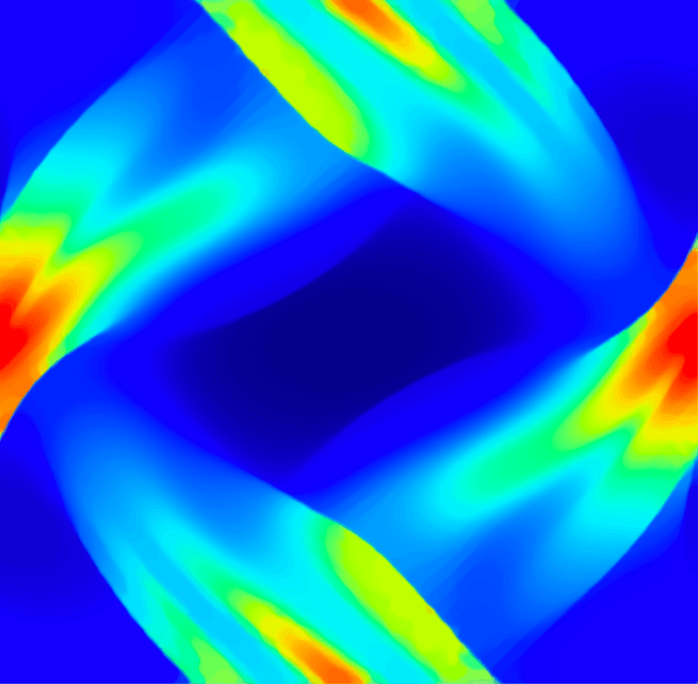Characteristics of a fluid. Derivation of the fluid equations from Boltzmann’s equation. The equations of continuity, momentum and energy transport. Ideal and resistive MHD. Ohm’s law. The Lundquist number. Simplifications and domains of validity. Conservation laws. Fluid drifts. Magnetic pressure. Boundary conditions. The virial theorem. Shear and magnetic well. Equilibrium in cylinder geometry. Flux and surface quantities. Pinches. The reversed-field pinch. Toroidicity, the Grad-Shafranov equation. Resistive diffusion. MHD waves and spectra. Stabilising and destabilising forces. Nondimensionalisation of equations. Linearisation. Normal modes. Eigenvalue problems in MHD. The energy principle. Rayleigh-Taylor instability. Resistive instabilities. The magnetosphere. MHD processes in the Sun.
FED3230 Magnetohydrodynamics 8.0 credits

This is an introductory course to magnetohydrodynamics (MHD), an essential theory for modelling plasmas on earth and in space.
The course covers:
• theoretical basis
• properties of the MHD plasma
• MHD equilibrium
• stability and waves
• MHD in nature
Picture: Orszag-Tang vortex.
Information per course offering
Information for Spring 2025 Start 14 Jan 2025 programme students
- Course location
KTH Campus
- Duration
- 14 Jan 2025 - 2 Jun 2025
- Periods
- P3 (4.0 hp), P4 (4.0 hp)
- Pace of study
25%
- Application code
61242
- Form of study
Normal Daytime
- Language of instruction
English
- Course memo
- Course memo is not published
- Number of places
Places are not limited
- Target group
- No information inserted
- Planned modular schedule
- No information inserted
- Schedule
- Schedule is not published
- Part of programme
- No information inserted
Contact
Course syllabus as PDF
Please note: all information from the Course syllabus is available on this page in an accessible format.
Course syllabus FED3230 (Spring 2019–)Content and learning outcomes
Course contents
Intended learning outcomes
When completing the course, the student should be able to
- Provide the details of the derivation of ideal and resistive MHD equations
- Describe and explain the domains of validity of one-fluid MHD
- Demonstrate the basic properties of ideal MHD
- Give detailed examples of MHD equilibria and their properties
- Discuss MHD waves
- Derive the Energy principle
- Apply the Energy principle to the Rayleigh-Taylor instability
Literature and preparations
Specific prerequisites
Literature
Examination and completion
If the course is discontinued, students may request to be examined during the following two academic years.
Grading scale
Examination
- EXA1 - Examination, 8.0 credits, grading scale: P, F
Based on recommendation from KTH’s coordinator for disabilities, the examiner will decide how to adapt an examination for students with documented disability.
The examiner may apply another examination format when re-examining individual students.
Other requirements for final grade
Final oral exam.
Examiner
Ethical approach
- All members of a group are responsible for the group's work.
- In any assessment, every student shall honestly disclose any help received and sources used.
- In an oral assessment, every student shall be able to present and answer questions about the entire assignment and solution.